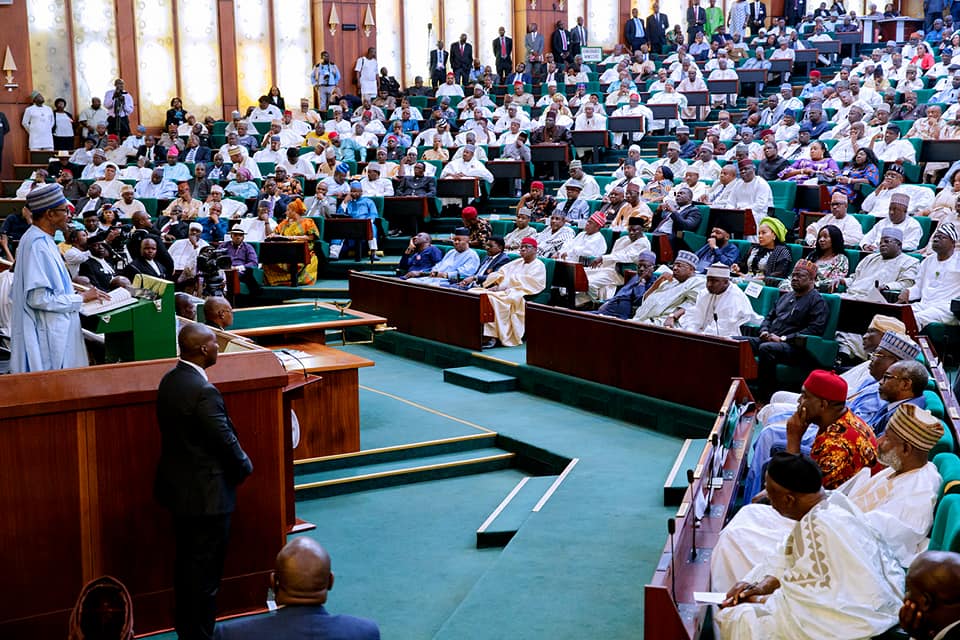- N’Assembly May Pass 2018 Budget on Thursday
Barring last-minute changes, the National Assembly would receive the report on the 2018 budget from its joint Committee on Appropriation tomorrow (Wednesday).
Investigations indicated that the laying of the N8.612tn budget would be preparatory to its possible passage on Thursday.
A parliamentary source informed our correspondent in Abuja on Monday, “We will be in May on Tuesday; that means the country will run out of the 2017 budget in a matter of weeks. Members have come under pressure; they have had to work very hard in the past days to ensure that the report is ready.
“The blame of the delay in the passage of the budget is both on the Executive and partly the legislature.”
Investigations showed that the Appropriation Bill, earlier planned for passage on April 24, failed because of “the enormous volume of work” before the various committees and particularly, the anchor Committee on Appropriation.
Last week, the Deputy Chairman, House Committee on Appropriation, Mr. Chris Azubuogu, confirmed that the National Assembly would take up to May to pass the budget.
Speaking on the volume of work, he had stated, “There are over 7,000 pages of work before us. So, you can appreciate what I am saying.”
However, on Monday, it was gathered that much of the work had been tidied up for the presentation of the report on Wednesday.
A source told our correspondent, “Except another thing changes, the plan is to have the report from the Appropriation Committee on Wednesday.
“The following day, being Thursday, hopefully, the budget will be passed.”
When contacted for comments, the Chairman, House Committee on Media and Public Affairs, Mr. Abdulrazak Namdas, refused to be categorical about the dates.
He made a general statement that this week would be devoted to the budget.
“What I will say is that as we reconvene after May 1, we will focus on the budget. We will devote much time to the budget this week. It will get adequate attention,” Namdas added.
Investigators gathered that the National Assembly might alter the crude oil benchmark for the budget.
President Muhammadu Buhari had proposed a benchmark price of $45 for a barrel of crude oil, up from the $44 passed for the 2017 budget.
Reporters indicated that the driving force for the possible jack up in the benchmark price was the rise in the global price of crude.
It was learnt that lawmakers were considering a new benchmark of between $47 and $52 per barrel.
A source stated, “In November 2017, when the President brought the budget, the price of crude was $50 and above. Today, it is nearing $75, which is a good development for our budget.
“It then means that with additional funds coming in, the huge deficit of N2.005tn can also be addressed, for example.”
The N8.612tn budget is up from the N7.44tn appropriated in 2017 by N1.17tn, or a 16 per cent difference.
But, it is unclear what the final figure to leave the National Assembly will be when it is passed.
Some of the proposals from the President are recurrent expenditure, N3.494tn; capital expenditure, N2.652tn; debt servicing, N2.014tn; and statutory transfers, N456bn.

 Forex3 weeks ago
Forex3 weeks ago
 Naira3 weeks ago
Naira3 weeks ago
 Billionaire Watch3 weeks ago
Billionaire Watch3 weeks ago



 Naira3 weeks ago
Naira3 weeks ago






 Naira3 weeks ago
Naira3 weeks ago




 Naira2 weeks ago
Naira2 weeks ago




 Naira4 weeks ago
Naira4 weeks ago






 Naira2 weeks ago
Naira2 weeks ago
























